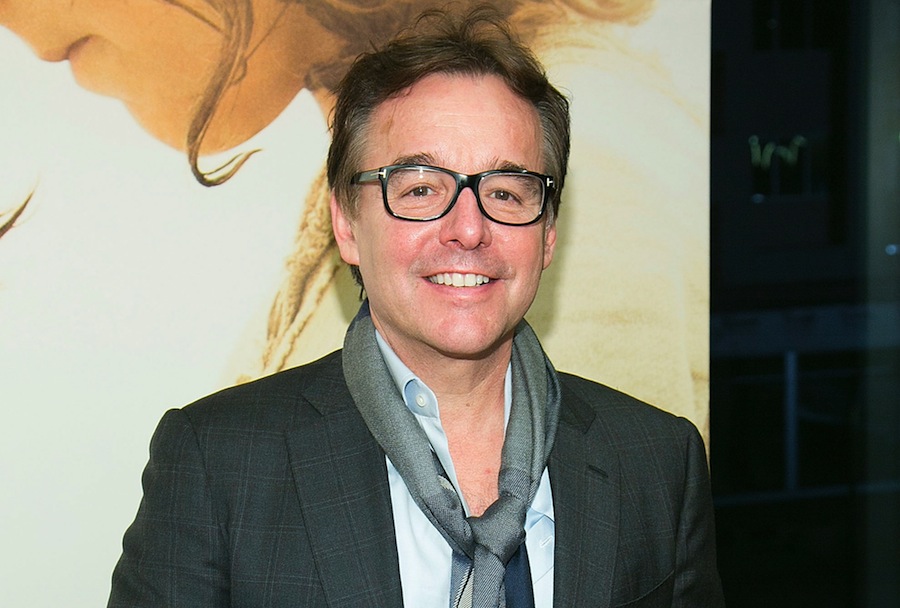Chris Columbus wrote “Gremlins.” He directed “Home Alone,” “Mrs. Doubtfire” and the first two “Harry Potter” films. He even helmed the 2006 movie version of “Rent.” None of these suggest he’d be involved in a movie about the seven-year-old Jesus Christ. And yet the filmmaker is a producer on “The Young Messiah,” a drama based on a novel, “Christ the Lord,” by another unexpected player: “Interview with the Vampire” maven Anne Rice. “Trust me, I’m not going into the business of faith-based films,” Columbus tells us.“I just responded to the story.”
RELATED: Interview: Helen Mirren on “Eye in the Sky,” drones, feminism and Jennifer Lawrence “The Young Messiah” follows the boy Jesus (played by Adam Greaves-Neal) as he and his family return to Nazareth, avoiding detection by King Herod’s minions. He also starts to realize he might not be an average kid. Columbus says he’s always been fascinated by Jesus. Along with 12 years of Catholic school, he was in college during the period, in the early 1970s, when Christ was absorbed by a certain hippie faction. It was the time of rock operas like “Jesus Christ Superstar” and “Godspell.” “He was like a rock star,” he remembers.
He was also fascinated with him growing up. “Imagine me as a kid reading Marvel comics and being taught about Jesus. It was like he was almost part of the same world, a little bit, only he’s the best one,” he says. “He was like the first superhero.” Columbus was a movie freak, so inevitably he would see all the biblical epics, including the ones about Jesus’ life, like 1961’s “King of Kings” and 1965’s “The Greatest Story Ever Told.” But he always took issue with them. “All the guys who played Jesus were blond-haired, blue-eyed surfer guys,” he says, referring to actors like Jeffrey Hunter and Max von Sydow. “When I went to film school I would say, ‘Someone someday should make a movie that’s representative of who he was.’ That’s always been in my head, and I’d still like to see that movie, because I don’t think it’s been made.” He says “the Gibson movie” (aka Mel’s “The Passion of the Christ”) came close to the gritty movie he’d long hoped for. “But with that I felt like I walked in on the third act of a movie,” he says. “I wanted to see the first two acts of Jesus’ life.” When filmmaker Cyrus Nowrasteh (“The Stoning of Soraya M.”) brought Rice’s book to him, he got really excited, even though it wasn’t the big, sprawling, life-spanning Jesus movie he’d always hoped for. (He says he’ll probably not be the one to make that.) “It was interesting to tell a story that didn’t really exist in the scriptures, and imagine a situation where Jesus I trying to understand who he is and why he has these abilities,” he says. “I can’t deny that didn’t somehow appeal to my love of superheroes. It felt like it was in that vein.” (Indeed, the film fits right into our era’s love for prequels and spin-offs and one-offs, this one filling in a hole in the scriptures, which jump from his birth to him at age 12.) RELATED: Interview: Robert Carlyle on directing “Barney Thomson” and staying true to thick Scottish accents That said, making a movie imagining a chunk of Jesus’ life comes with great responsibility. “Because it wasn’t based on scripture, we had to be extremely careful how we told the story,” Columbus explains. “We surrounded ourselves with religious experts, and someone from the Vatican helped us make sure, with absolute certainty, no one would take offense to the material.” He says they succeeded. “We’ve shown the film to a bunch of religious leaders and they’ve all endorsed it. They seem to respond to the film because of its emotional intensity,” he says. They don’t often mind that it’s a PG-13, with scenes of brutality at the hands of the centurions. “We had to depict what was going on at the time. We couldn’t make an R-rated version, for obvious reasons. It has a lot of integrity because of that. It’s not watered down.” RELATED: Interview: Joseph Fiennes is proud “Risen” features a non-Caucasian Jesus Speaking of PG-13, Columbus is partially responsible for the rating. Again, he wrote “Gremlins,” which was originally envisioned as a hard-R but still retained the nastiness. (“I wouldn’t show it to an eight-year-old,” he admits.) Columbus shifted quickly into more family-friendly fare, like “Home Alone.” But he says the two films aren’t that dissimilar.
“I don’t see much difference between some of the sequences in ‘Home Alone’ and ‘Gremlins.’ A gremlin gets blown up in a microwave, but an iron falls down a laundry chute and does not kill a guy,” he explains, laughing. He says that part of him never really went away. “There’s a dark side to all my stuff,” he says. “Even ‘[Mrs.] Doubtfire’ deals with divorce and we don’t clean it up at the end. They stay divorced and they don’t get back together in a Disney way. The ‘Potter’ films, I knew getting into them they would get progressively darker as they went along. We designed the first two so by the time it got to ‘Prisoner of Azkaban’ things would be darker. “That dark side is still very appealing to me,” Columbus adds.
Follow Matt Prigge on Twitter @mattprigge
Chris Columbus on ‘The Young Messiah’ and Jesus as a superhero

Getty Images


















